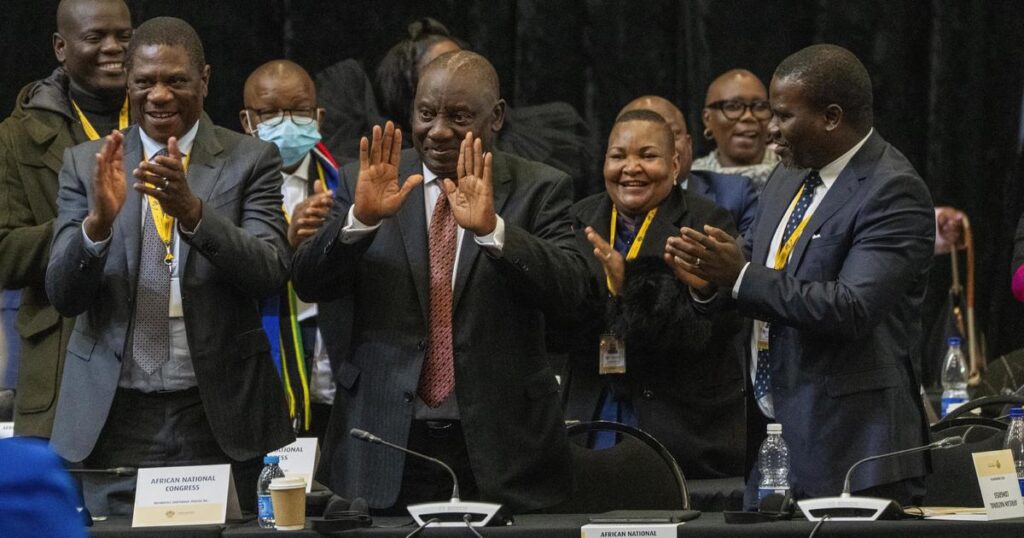In a historic and dramatic turn of events, South African President Cyril Ramaphosa secured his second term in office on Friday, following a late-night coalition deal struck with a former political adversary just hours before the vote. The leader of the African National Congress, Ramaphosa triumphed in Parliament against an unexpected contender, Julius Malema of the far-left Economic Freedom Fighters, with a resounding 283 votes to Malema’s 44 out of the 400-member house.
Ramaphosa, a seasoned 71-year-old statesman, clinched his reelection with crucial support from lawmakers representing the Democratic Alliance and other smaller parties, after the ANC suffered a significant setback in the recent general elections, leaving it with a reduced majority of 159 seats in Parliament.
The groundbreaking agreement, referred to as a government of national unity, unites the ANC with the traditionally oppositional DA and other smaller parties, marking a first in South Africa’s political landscape where no single party holds a parliamentary majority.
The deal sets the stage for collaborative governance as Ramaphosa described it as a “new birth, a new era for our country,” emphasizing the importance of unity and consensus-building among political factions.
The historic loss of its 30-year majority in the recent electoral contest marked a turning point for the ANC, traditionally associated with the legacy of Nelson Mandela and the country’s liberation from apartheid in 1994. Widespread discontent among South Africans over persistent issues of poverty, inequality, and unemployment served as a backdrop for the electoral shift.
However, challenges loom ahead due to ideological disparities between the ANC, rooted in its liberation movement origins, and the centrist, business-friendly DA, which secured the second-largest share of the votes after the ANC.
Timely negotiations led to the formation of the unity government, symbolizing a departure from the polarized political landscape and echoing Nelson Mandela’s legacy of inclusive governance following the end of apartheid. The multi-party coalition represents a new chapter in South Africa’s political history, as the country collectively grapples with profound socioeconomic challenges.
As South Africa navigates this uncharted political terrain, reminiscent of the reconciliation efforts of the post-apartheid era, the coalition government’s formation reflects a spirit of collective responsibility and shared governance to address the nation’s pressing needs.
